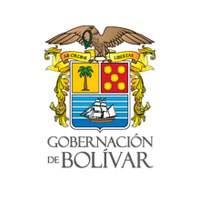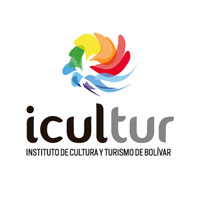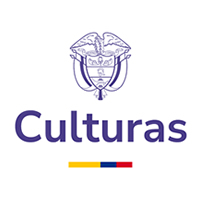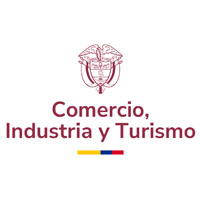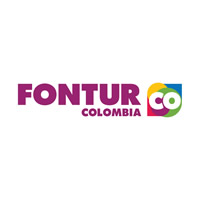Hay Festival Cartagena 2023
Welcome to the Hay Festival Cartagena de Indias 2023 programme, to be held from 26 to 29 January. In this page you can find the events in the general programme as well as Hay Joven activities tor university audiences, Hay Comunitario sessions which will take place in different areas of Cartagena, Reading Clubs and Talento Editorial.
The tickets of the general programme and reading clubs are on sale for in person events. If you wish to register to see the live streaming of events, please select the option "Register to watch online" when this option is available. Hay Joven, Hay Comunitario and Talento Editorial are 100% in person and free of charge.
If you have any issues regarding the payment of your tickets, please contact us at tickets@hayfestival.org or at +57 317 516 55 13.
If you are a students a wish to request free tickets, you can write to us at estudiantes@hayfestival.com.
If you have any general questions, you can find us at contacto@hayfestival.org.
Event 50
Piedad Bonnett in conversation with María Elvira Samper
Centro de Convenciones (Auditorio Getsemaní)
Read moreSponsored by SURA and Protección
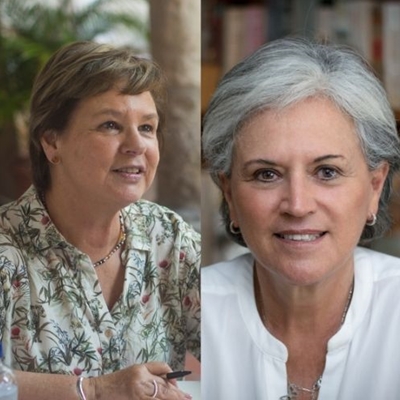
Event 51
Bocafloja, Tanya Hernández and Maricruz Rivera Clemente in conversation with Agustín Laó-Montes
Anti-racist activism
Palacio de la Proclamación (Auditorio Juan José Nieto)
Read moreIn the last decade, Latin America has shown itself to be a region that leads in terms of racial justice and the fight against racism, with a wave of collective actions. We talk about them and their territorial characteristics with Bocafloja (Mexico), an interdisciplinary artist and curator who, in his work, tackles themes such as critical race theory, the Global South, coloniality and the African diaspora in Latin America; Tanya Hernández (United States), a specialist in comparative racial relations and anti-discrimination law, and author of Inocencia racial: desenmascarando la antinegritud de los latinos y la lucha por la igualdad; and Maricruz Rivera Clemente, founder of Corporación Piñones se Integra COPI and co-founder of Corredor Afro in Piñones in northern Puerto Rico, and activist against the discrimination of the Afro-descendent population. In conversation with Agustín Laó-Montes.
With the support of the Ford Foundation-Malunga: Network for Global Justice
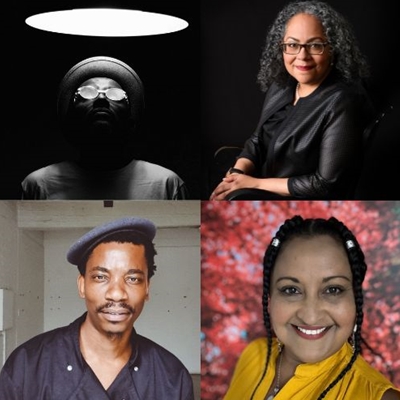
Event HFJ18
Leonardo Padura in conversation with Silvia Valero
Universidad de Cartagena, Claustro de San Agustín (Biblioteca)
Read more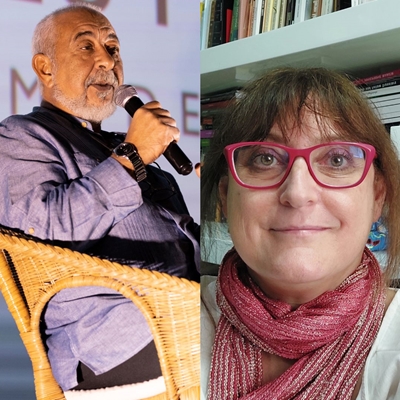
Event CL4
María Dueñas in conversation with Ana María Aponte
Casa Hay (Centro de Convenciones)
Read moreAt its book clubs, Hay Festival Cartagena offers intimate encounters with a selection of festival guests. These are spaces to talk in greater depth about recent work by some of the festival’s participants. At this event, María Dueñas (Spain) will talk to Ana María Aponte about her book Sira, which tells more of the story of the intrepid protagonist of The Time In Between.
Those attending must have read the book
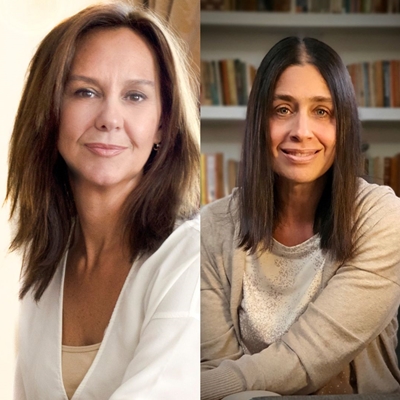
Event HFJ19
Silvia Vásquez-Lavado in conversation with Joel Samper
Universidad Tecnológica de Bolívar (sede Manga)
Read more
Event HFC26
Carlos Agudelo Montoya
Centro de Formación de la Cooperación Española (Biblioteca)
Read more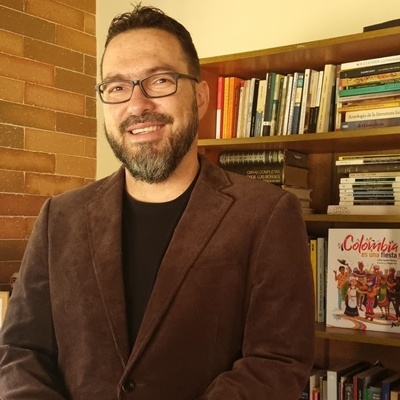
Event HFC27
Carolina Garzón Blanco
Singing, storytelling and bullerengue
Corporación Ruleli
Read moreWith the support of Fontur

Event 52
Susan Neiman and Rinaldo Walcott in conversation with Paula Moreno
Dreaming the impossible? Reinventing memories of slavery
Centro de Convenciones (Auditorio Getsemaní)
Read moreThe origin of racism against Afro-descendent people goes back to slavery, empire building and the capitalist development of the world. In conversation with Paula Moreno will be Susan Neiman, a US philosopher and writer, author of Learning from the Germans: Race and the Memory of Evil; and Rinaldo Walcott (Barbados / Canada) is a writer, critic, researcher in the area of Black Diaspora Cultural Studies, gender and sexuality, and author of the book On Property: Policing, Prisons, and the Call for Abolition.
Simultaneous interpretation from English to Spanish available
With the support of the Ford Foundation- Malunga: Network for Global Justice

Event 53
María Negroni and Cristina Rivera Garza in conversation with Daniela Pabón
Creation
Centro de Convenciones (Salón Barahona)
Read morePoetry and narrative; fiction and non-fiction; creation and translation; two writers who cross these borders will talk to Daniela Pabón. With María Negroni (Argentina), the author of numerous poetry books, essays and novels, translated into several languages, Doctor in Latin American Literature from Columbia University and Director of the Master’s in Creative Writing at UNTREF in Buenos Aires. Guggenheim, Rockefeller and now DAAD fellow, her recent publications include La idea natural, a homage to nature, literature and everything they bring, and Utilidad de las estrellas. Cristina Rivera Garza (Mexico) is a translator, essayist, fiction writer and founder of the doctorate in Creative Writing in Spanish at Houston University. MacArthur fellow and winner of the Sor Juana Inés de la Cruz Prize, she won a Pulitzer Prize for Liliana’s Invincible Summer. On this occasion she presents the poetry book, Me llamo cuerpo que no está.

Event 54
Conference by Rodrigo Quian Quiroga, followed by conversation with Norberto Paredes
What Makes us Human?
Teatro Adolfo Mejía
Read moreSponsored by SURA and Bancolombia

Event 55
Rachel Eliza Griffiths in conversation with Juan Gabriel Vásquez
Palacio de la Proclamación (Auditorio Juan José Nieto)
Read moreRachel Eliza Griffiths (United States) is a multimedia artist, poet and novelist, and has received fellowships from the Robert Rauschenberg Foundation and the Cave Canem Foundation. Her literary and visual work has been published in major magazines and newspapers including The New Yorker and The New York Times. Author of various poetry collections, her most recent collection is Seeing the Body. Her first novel, Promise, tells the story of the Kindred sisters in the rural town of Salt Point in 1957 within the context of the civil rights movement; it is a book that celebrates resistance and love in times of adversity. In conversation with Juan Gabriel Vásquez.
Simultaneous interpretation from English to Spanish available
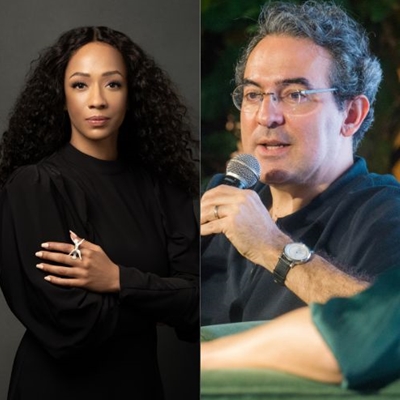
Event HFC28
Jesús Herrera Babilonia
Workshop: Writings about us: territorial empowerment through the word
Biblioteca Popular de Playa Blanca
Read moreThis workshop with the cultural manager and educator Jesús Herrera Babilonia (Colombia) seeks to boost the community’s individual and collective identity by means of self-knowledge and critical reflection on their cultural roots. It will offer spaces where people can connect with their history and traditions, recognising their value as part of the construction of the territory.
Ages 6 and over
With the support of the Colombian Ministry of Cultures, Arts and Knowledge
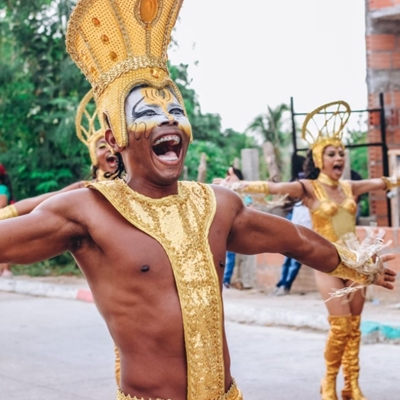
Event CL5
Melba Escobar in conversation with Ana María Aponte
Casa Hay (Centro de Convenciones)
Read moreAt its book clubs, Hay Festival Cartagena offers intimate encounters with a selection of festival guests. These are spaces to talk in greater depth about recent work by some of the festival’s participants. At this event, Melba Escobar (Colombia) will talk to Ana María Aponte about her book Las huérfanas, a novel that delves into the family past, origins, the creation of a female identity, and the place of the dead, who never die in the minds of the living.
Those attending must have read the book
Sponsored by Protección

Event HFJ20
Tanya Hernández in conversation with Laura Martínez Salcedo
Universidad de Cartagena, Claustro de San Agustín (Biblioteca)
Read more
Event HFC29
Yuderkys Espinosa in conversation with Laura Romero de la Rosa
La Canoa Literaria
Read moreYuderkys Espinosa is an Afro-Caribbean thinker, writer, researcher and educator. She was born on the island of Ayiti, to give it its original name, specifically on the eastern side that bears the name of the Dominican Republic. A pioneer in decolonial feminism and a direct disciple of María Lugones. Director of the Caribbean Institute for Decolonial Thought and Research (INCAPID/GLEFAS) and founding member of the Latin American Group for Feminist Studies, Training and Action (GLEFAS). For more than 30 years she has been carrying out and promoting popular and community training processes for the strengthening of black, indigenous and marginalized communities, both locally and internationally. She will talk to Laura Romero de la Rosa on the importance of feminist and decolonial thinking for the community of Tierra Baja.
With the support of the Ford Foundation-Malunga: Network for Global Justice

Event 56
María Dueñas in conversation with José Manuel Acevedo
Centro de Convenciones (Auditorio Getsemaní)
Read moreSponsored by RCN and Postobón

Event 57
Marcus du Sautoy, Rodrigo Quian Quiroga and Rafael Yuste in conversation with Sylvie Duchamp
20 questions: AI
Centro de Convenciones (Salón Barahona)
Read moreIn 2025, the Hay Festival celebrates 20 years of conversations and thought in Colombia. To mark the anniversary, we have run a collaborative project in which Colombian society has helped us to put the twenty key questions for our time. Given the uncertainty created by the appearance of AI and its increasing use in everyday tasks, figures from the Hay Festival Cartagena ask us to reflect on its development based on the following questions: How can we make ethical use of biomedicine and artificial intelligence? How is it possible to guarantee that artificial intelligence does not increase existing inequalities? In conversation with Sylvie Duchamp will be Marcus du Sautoy (United Kingdom), Rodrigo Quian Quiroga (Argentina) and Rafael Yuste (Spain).
Simultaneous interpretation from English to Spanish available

Event 58
Anne Applebaum, Edward Chancellor, Nataliya Gumenyuk and Susan Neiman in conversation with Jon Lee Anderson
20 questions: democracy
Teatro Adolfo Mejía
Read moreIn 2025, the Hay Festival celebrates 20 years of conversations and thought in Colombia. To mark the anniversary, we have run a collaborative project in which Colombian society has helped us to put the twenty key questions for our time. With democracy being questioned and affected by growing disinformation, the participants at this round table invite us to reflect on the following questions: Are we experiencing the end of the single Western narrative? Are there models other than the democratic one? Will we give up our civil rights to have more security? How should we combat disinformation? How should governments manage immigration? With Anne Applebaum (United States), Nataliya Gumenyuk (Ucrania), Susan Neiman (United States) and Edward Chancellor (United Kingdom). In conversation with Jon Lee Anderson.
Simultaneous interpretation from English to Spanish available
Sponsored by SURA and Bancolombia

Event 59
Camila Sosa Villada in conversation with Melba Escobar
Centro de Formación de la Cooperación Española (patio)
Read more
Event 60
Mayra Santos-Febres, Rinaldo Walcott and Suraj Yengde in conversation with Agustín Laó-Montes
Palacio de la Proclamación (Auditorio Juan José Nieto)
Read moreThe novelist, poet and essayist, Mayra Santos Febres (Puerto Rico) is the author of Lecciones de renuncia and La otra Julia. Rinaldo Walcott (Barbados / Canada) is a writer, critic, researcher in the area of Black Diaspora Cultural Studies, gender and sexuality, and author of the book On Property: Policing, Prisons, and the Call for Abolition. Suraj Yengde is a noted Indian academic and intellectual, an associate researcher with the Department of African and African American Studies at the Hutchins Center for African and African American Research. They will talk to Agustín Laó-Montes, exploring the relationships among race, caste and class, from an intersectional perspective.
Simultaneous interpretation from English to Spanish available
With the support of the Ford Foundation-Malunga: Network for Global Justice

Explore All Genres
- 20 Questions
- Afrodescendencias
- South to South
- Architecture
- Art
- Arts & Culture
- Biography
- Children
- Culture
- Economics
- Education
- Equality
- Fiction
- Film
- Gender
- Globalisation
- History
- Human Rights
- Indigenous Cultures
- Journalism
- Literature
- Maths
- Memoir
- Music
- Nature & Environment
- Philosophy
- Photography
- Podcast
- Poetry
- Politics
- Science
- Technology
- Thinking
Partner for Latin America

Principal Sponsors
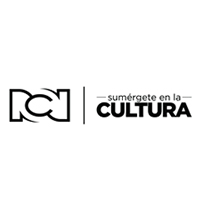


Government Partner

